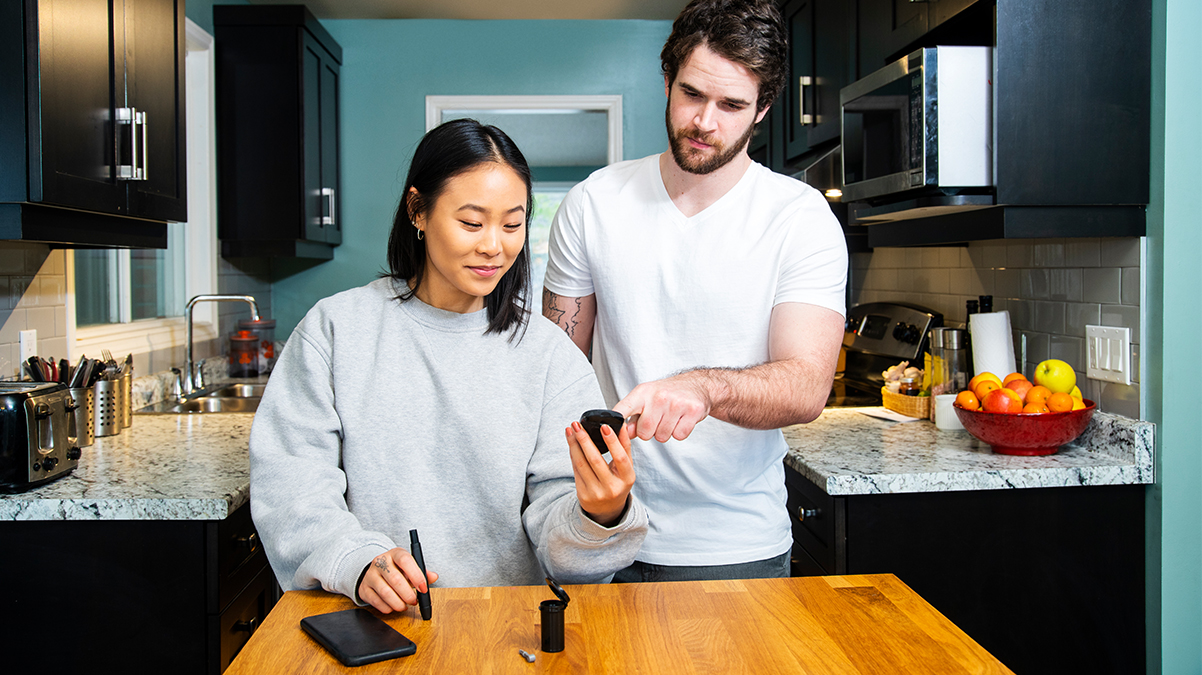Type 1 Diabetes and Committed Relationships

Type 1 diabetes (T1D) can add a new layer to your relationships. In addition to the physical symptoms, the emotional and social effects of the disease can be challenging to manage. If you’re in a committed relationship, your type 1 diabetes has probably come up — maybe even more often than you would like. Type 1 diabetes is a big part of your life, so it’s only natural that it will play a role in your partner’s life as well. Any committed relationship requires cooperation, communication and compromise — and it’s no different when you or your partner has type 1 diabetes. Having the tools to make things work with your significant other while managing your type 1 diabetes will improve both your relationship and your diabetes management.
Cooperation and Communication
Committed relationships take teamwork, and those where one of the partners has type 1 diabetes are no different. Sometimes, managing the disease will be a team effort between you and your partner. Other times you will need space to manage your diabetes alone. Both partners need to be honest and understanding about what is helpful and what is not. The clearer you are with your partner, the easier it will be for them to meet your needs.
Communication, combined with self-awareness, can do wonders. Here’s a few examples of how this might take shape in your relationship:
- If you’re feeling on edge, remember that your blood sugar can affect your mood. Knowing where your blood sugar is and communicating its impact to your partner can be helpful. For example, if you get short-tempered when you experience a low, your partner will better understand how to support you. Both you and your partner should be aware of the possibility of mood swings and their potential impact on communication. Sometimes during a heated discussion, the best thing you or your partner can do is step back and assess how your mood is impacting the situation.
- Don’t feel like you have to conceal your pain or frustrations. Telling your partner about the emotional and physical tolls of your diabetes management can help them further understand your state of mind. Plus, it allows them to react accordingly. The less they have to guess about how you might be feeling, the more you two can enjoy and support one another. Fostering open and honest communication will also help your partner be more comfortable sharing how they feel about your type 1 diabetes.
Compromise
Relationships, in general, require give-and-take. In some cases, you might be able to meet your partner halfway. You can develop a strategy for changing meal times, exercise schedules and more. All committed relationships are about making adjustments and occasional compromises. And with type 1 diabetes your partner may feel that they are making more compromises than you are. But through open communication channel and productive conversations with each other you will be able to find your rhythm and get used to managing your type 1 diabetes together.
Putting It All Together
Though it’s tempting to pretend that type 1 diabetes doesn’t play a role in your relationship, it’s important to keep in mind that it does. Your type 1 diabetes isn’t something you need to grapple with in private. Healthy diabetes management is an open and constant part of you and your partner’s life.
It’s your type 1 diabetes, your management and your health. But that doesn’t mean you can’t work through it with your significant other. Remember, your partner is there for you and willing to help you along the away. It won’t always be easy but with cooperation and communication, it will get easier.
A Note to Partners of Those with Type 1 Diabetes
Be supportive and be patient. Educate yourself by asking questions about things you don’t understand and consider getting involved in communities where others talk about and discuss type 1 diabetes. This is a very personal condition, but at the same time, it’s tough to live with it alone. Make sure you are there to help and support, not to become overly critical of your partner – even if they are facing difficulties with disease management.
A solid sense of self, combined with an honest and supportive relationship, make all facets of diabetes management easier. That being said, it is important to be able to talk through all of the joys and the challenges of being in a committed, intimate relationship with someone who has type 1 diabetes.